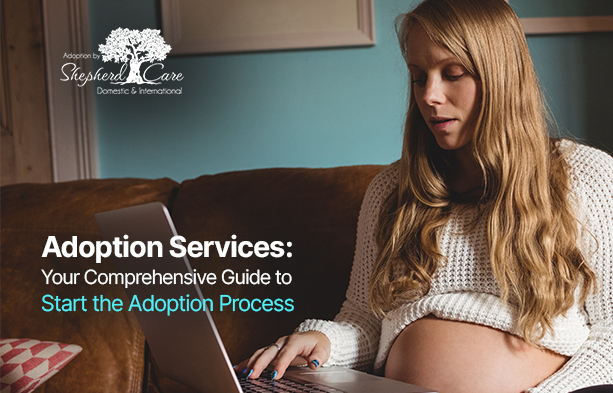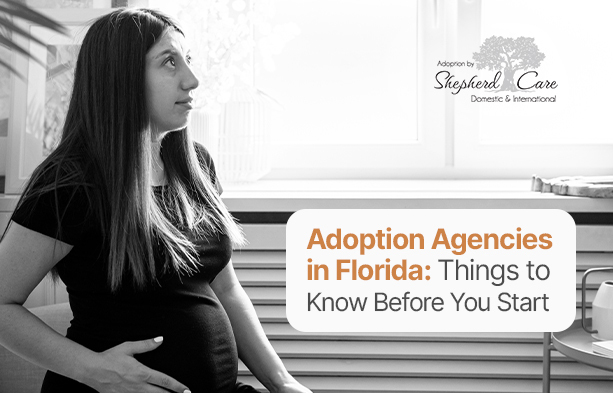If you’re interested in learning about the 7 core principles of adoption, you’ve come to the right place. In this article, we will explore the essential elements that shape a successful adoption process. It will also include how Adoption By Shepherd Care incorporates these principles into their practices.
Understanding the Adoption Process
Understanding the adoption process is the first step in your journey toward building a forever family. Adoption can be a complex and emotional journey involving various legal requirements and paperwork. Prospective adoptive parents need to educate themselves on the process’s seven core principles:
- Legal Requirements: Each country or agency may have specific criteria for adoptive parents. These include age, stable finances, background checks, and good physical and mental health.
- Emotional Resilience: Adoption can be emotionally challenging, requiring patience and perseverance as you navigate potential setbacks or delays.
- Flexibility: Being open-minded and flexible is essential, as different types of adoptions exist, each with unique dynamics.
- Professional and Peer Support: Seek guidance and emotional support from professionals and other adoptive families, as their experiences can be invaluable.
Building Trust and Attachment
For a birth mother, the journey to build trust and attachment with both the adoptive parents and her child can be a delicate and heartfelt process. Here’s how to navigate this path with grace and love:
Open Communication
Start by fostering open and honest communication with the adoptive parents. Share your thoughts, hopes, and feelings about your child’s well-being and development. This transparency lays the foundation for trust and understanding between you and the adoptive family.
Respect Boundaries
Respect the boundaries set by the adoptive parents. Understand that they are the primary caregivers and decision-makers for your child. By acknowledging and respecting these boundaries, you demonstrate your commitment to the child’s best interests.
Letters or Messages
Consider writing letters, or sending messages to the adoptive parents and, if age-appropriate, to your child. Share your love, memories, and hopes for the future. This form of communication can help maintain a connection and show your child that you care.
Celebrate Special Moments
If possible and agreed upon with the adoptive family, participate in special occasions or milestones in your child’s life. These shared moments strengthen your connection with the child and the adoptive parents.
Supportive Presence
Be a supportive presence in your child’s life by respecting their needs and preferences. Offer to be available when they have questions about their adoption or want to learn more about their birth family.
Seek Professional Guidance
If the adoptive parents and your child are open to it, consider family counseling or therapy sessions. These can provide a safe space for open dialogue and facilitate the building of trust and attachment.
Patience and Understanding
Understand that building trust and attachment may take time. Be patient and empathetic towards both the adoptive parents and your child. Recognize that the child’s emotional needs may evolve as they grow, and it’s important to adapt to these changes gracefully.
Remember, as a birth mother, your love and connection to your child are unique and meaningful. While the circumstances may be challenging, your commitment to their well-being and happiness will shine through, forging bonds of trust and attachment that can last a lifetime.
Advocating for the Child’s Best Interest
Advocating for the child’s best interest is a cornerstone of adoption. Key points to consider include:
- Child-Centered Advocacy: Prioritize the child’s needs and wishes through child-centered advocacy strategies, involving the child in decision-making processes.
- Legal Rights and Protection: Understand the legal rights and protection available to children in adoption and foster care, ensuring their well-being and necessary support.
Supporting Birth Parents and Open Adoption
In open adoption, it’s essential to involve birth parents and maintain healthy relationships. Adoption By Shepherd Care emphasizes these principles:
- Birth Parent Involvement: Including birth parents in the process fosters unity and understanding within the adoptive family, enriching the child’s life and creating a strong foundation for lifelong relationships.
- Maintaining Healthy Relationships: Effective communication is vital for maintaining healthy relationships, fostering trust, and promoting resolution through open dialogue.
Nurturing a Positive Identity and Cultural Connection
Placing a child up for adoption can be one of the most complicated decisions a person will ever make, but it doesn’t mean the end of a meaningful connection. Birth mothers can play an essential role in nurturing a positive identity and maintaining a cultural connection with their child in adoption.
- Open Communication: Keeping the lines of communication open with the adoptive parents is crucial. Share your cultural background, values, and traditions with them. By fostering a respectful and honest dialogue, you ensure that your child is raised with an awareness of their heritage.
- Celebrate Cultural Traditions: Encourage the adoptive parents to embrace and celebrate the cultural traditions that are important to you. This can include holidays, ceremonies, or even family recipes. Participating in these traditions, your child can develop a strong sense of cultural identity.
- Cultural Activities: Suggest cultural activities and events that your child can engage in. Whether it’s language classes, cultural festivals, or community gatherings, these experiences can help your child feel connected to their cultural roots.
By following these steps, a birth mother can actively contribute to her child’s positive identity and cultural connection. Adoption can be an avenue for a child to experience the rich tapestry of cultural diversity while maintaining a loving bond with their birth mother.
Embracing the Journey of Adoption
Embracing the journey of adoption is a rewarding experience despite its challenges. It’s crucial to acknowledge these challenges as opportunities for growth and learning. Support groups, like Adoption By Shepherd Care, offer a safe space for sharing experiences, seeking advice, and gaining emotional support.
You’ve learned about the 7 core principles of adoption that guide the process toward building loving and nurturing forever families. Prioritize the child’s well-being and provide them love, care, and a supportive environment as they grow.






